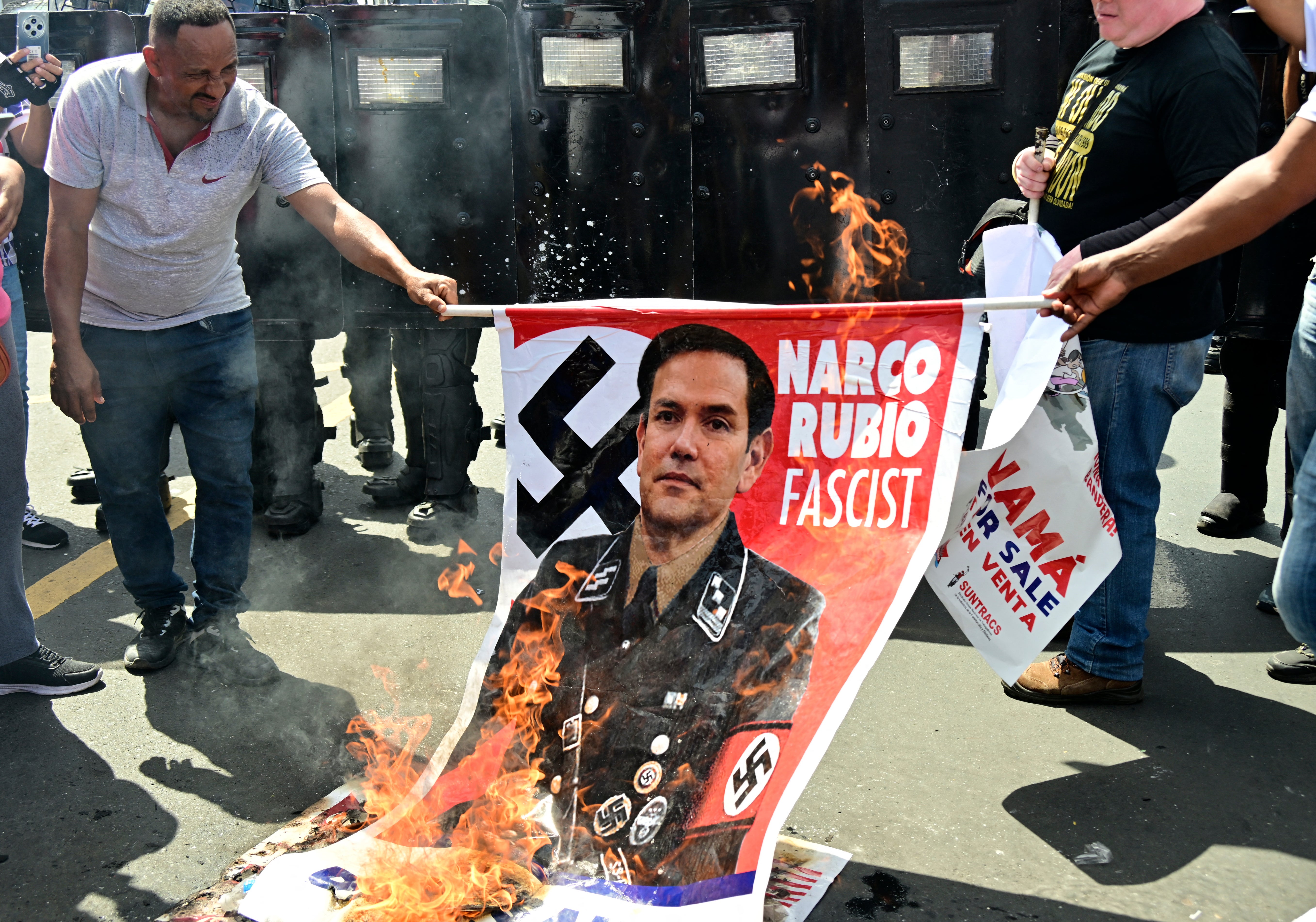President Donald Trump’s Secretary of State Marco Rubio demanded Panama immediately reduce “unacceptable” Chinese “influence and control” over the Panama Canal.
On his first official trip as America’s top diplomat, Rubio said in Panama that the U.S. would act “to protect its rights” under a longstanding mutual treaty as scores of people in the Central American nation marched in protest against his visit.
He held talks with President Jose Raul Mulino, who said Panama’s sovereignty over the canal was not up for debate but suggested he would review agreements involving Chinese businesses.
Rubio delivered Trump’s message, who has caused a diplomatic stir by saying Washington would take control of the Panama Canal.
“Secretary Rubio made clear that this status quo is unacceptable and that absent immediate changes, it would require the United States to take measures necessary to protect its rights under the Treaty,” U.S. State Department spokesperson Tammy Bruce said in a statement.

The Panama Canal is the second busiest shipping route in the world. Built by the U.S. in the early 20th century, it was handed over to Panama in 1999 as agreed under a 1977 treaty. The Neutrality Treaty gives the U.S. military the right to defend the canal if there is a threat to its neutrality.
Trump has objected to Chinese companies investing in ports and terminals near the canal. He has refused to rule out the use of military force against Panama, drawing criticism from Washington’s Latin American friends and foes alike.
Trump claimed over the weekend Panama had violated the 1977 deal and reiterated that the U.S. would take back the canal, but said he did not think military action would be necessary.
“China’s running the Panama Canal. That was not given to China, that was given to Panama, foolishly, but they violated the agreement and we’re going to take it back, or something very powerful is going to happen,” Trump told reporters. “I don’t think troops will be necessary in Panama.”
Mulino said his meeting with Rubio was respectful and cordial but insisted that the canal “is operated by our country and will continue to be”.
He suggested a willingness to review some Chinese businesses, including a 25-year concession to CK Hutchison Holdings, which is based in Hong Kong.
Authorities in Panama are carrying out an audit of the Panama Ports Company, a subsidiary of CK Hutchison Holdings, that operates two terminals around the canal. “We have to wait until that audit ends before we can reach our legal conclusions and act accordingly,” Mulino said.
Panama renewed the contract for the company to operate a port at each end of the canal in 2021. The contract has been targeted by U.S. politicians as an example of China’s expansion in the Latin American country.
Mulino said Panama would not renew a 2017 agreement with China to join its overseas development initiative known as the Belt and Road, and hinted the deal could end early.
Panama would seek to work with the U.S. on new investments, the president said. “I think this visit opens the door to build new relations,” he added.
China has said it plays no part in operating the canal and that it respects Panama’s sovereignty over the waterway.
“Never ever has China interfered,” foreign ministry spokesperson Mao Ning said when asked about America’s claims last month, adding that China recognises the canal as “a permanently neutral international waterway”.
Rubio’s visit saw nearly 200 people marching in protest in Panama City. The protesters shouted slogans of “Marco Rubio out of Panama”, “Long live national sovereignty”, and “One territory, one flag”.
Many burnt effigies of Trump and Rubio as riot police fired tear gas to control the crowd near the presidential palace.

